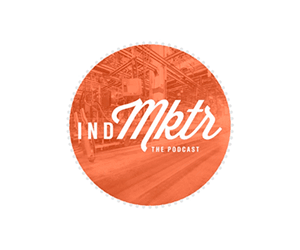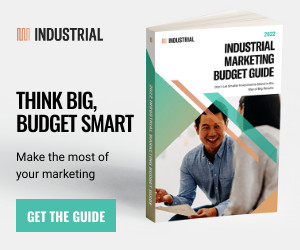Modern technologies such as AI in B2B marketing are reshaping business reality. What was seen as science fiction a mere decade ago is slowly becoming a normal way of doing business in technologically advanced segments of economy. Where automation was the main trend in the beginning of 2000s or earlier, the 2020s are slowly taking it to a new level of robotic process automation (RPA) with artificial intelligence and machine learning in place.
Revolutionary changes embrace all business segments, and AI in B2B marketing market is already a reality. According to the fifth edition of “State of Marketing,” an overview of modern marketing trends by Salesforce Research, adoption of artificial intelligence by marketers grew by 44% within a year (2017-18). Introduction of robust rules for gathering, storing and processing of personal data — the General Data Protection Regulation (GDPR) — may have adversely affected the pace, but will never stop AI adoption completely.
By now, marketers have learnt new ways of balancing personalized marketing with privacy protection as required by GDPR, although recent research by Demandbase and Salesforce Pardot suggests nothing but moderate adoption rates in 2021, with only one in five B2B-oriented companies employing AI. There are good prospects for the future though, considering that two thirds of surveyed companies at least have sound adoption plans.
Postponing adoption of advanced technologies puts companies in danger of losing their competitive advantage to rivals, so even with limited budgets it is still better at least to be within the group of those planning digital transformation. But before digging into more detailed analysis of AI in B2B marketing, it is important to note the specifics of what will be exploring, particularly what makes B2B marketing so different from B2C marketing.
Why AI in B2B Marketing Makes Sense
The process of generating customer engagement is one of the main aspects underlying any B2B marketing strategy. The difference with B2C lies in the fact that in direct business-to-consumer marketing, companies look at a large pool of millions of depersonalized customers.
With most retail goods such as smartphones, it is enough to ask the marketing team to study current and emerging needs of smartphone users in aggregate and present a new model as a better alternative to others in the same price segment, but with extended functionality. The initial pools of leads may be doubled or even tripled, depending on the effectiveness of the marketing campaign.
With B2B marketing, though, the initial lead is more limited from the start and depends on the specific requirements of each client (as opposed to “aggregate” demands of a mass user). With the same product being positioned as a differentiated business solution, the marketing team needs to present it taking into account client-specific business needs, for example, in the form of supported applications or with the help of visual content.
Lead Nurturing & Data Enrichment
Another tiny nuance that makes the second case different is the way marketers behave with potential buyers. A surprising fact: according to MarketingSherpa, 73% of B2B business leads are not actually “sales-ready”, meaning that marketers need a fundamentally different strategy with such clients while “processing” them down the sales funnel (Awareness – Interest – Consideration – Intent – Evaluation – Purchase). Good advice for B2B marketing teams: The best way to sell anything is not actually selling it, but rather earning recognition, reputation, and trust among potential purchasers!
AI in B2B marketing creates opportunities, especially for smaller companies and start-ups which just don’t have teams large enough to perform fundamental marketing activities. They could use AI, for example, to tackle more sophisticated data analysis that they don’t have time for while greatly decreases administrative work and reducing their reliance on personal judgments based on partial information.
Lead generation with AI-assisted tools allows B2B marketers to:
- Streamline the process and make it run faster
- Perform predictive analysis and scenario planning
- Mark promising leads and dismiss doubtful ones
- Set different priorities within the pool of leads
- Do it all with more certainty because robot-collected data is definitely much more accurate than manually gathered data
Personalized Experiences
Business and private customers have different information requirements. A not particularly demanding student purchasing a new model of smartphone could ask a sales manager whether it supports 5G and be happy with that. A business organization, on the other hand, is a higher-order system which has multiple stakeholders with different, sometimes contradicting demands.
This is where the “magic” of AI can really assist B2B marketers. It’s a known fact that successful B2B marketing greatly depends on personification of the potential purchaser. With AI in marketing market, this can now be accomplished at scale. There are dozens of solutions like Pathfinder which read signals sent by potential customers, interpret them, and tailor marketing campaigns respectively.
Search Engine Optimization
Since the rise of the Internet era, search engines have been a dominant factor in digital marketing and, increasingly, for marketing in general.
While it can be very product- and sales-oriented, particularly in an e-commerce context, SEO is in fact a marketing approach to increase recognition of your brand. This is important since, as was said earlier, B2B marketing is more about building reputation. Guest posting service makes users view websites more often. Quality guest articles, of course, can also serve as a presentation of a promoted product, even if it is not mentioned directly.
SEO with AI-empowered toolkits is even more effective, allowing fast acquisition of SEO niche backlinks which would otherwise be acquired through labor-intensive, manual processes. Various platforms exist to make social media management and website content management faster and easier, much the same way that accounting software once made financial reports preparation a fast streamlined process.
Different industries have their own specifics, though. Even with widely used approaches to AI in B2B marketing, it is crucial to take an industry’s specifics into account while planning and implementing an AI-enabled B2B marketing campaign.
What You Need to Know about AI in B2B Marketing
To wrap it all up, let’s reiterate the key points to remember. Number one: AI in marketing is an emerging trend that won’t go anywhere. Adoption is going slowly but steadily, so it is not advisable to postpone it further, or there is a risk of losing any competitive advantage.
Second: B2B marketing is, in many ways, different from B2C marketing and requires a more nuanced approach for marketers who want to make paying customers out of their target audience. It is less about selling and more about building a good long-term impression.
Finally, because of digitalization, AI in B2B marketing has wide applications in SEO, which is one of the main industrial digital marketing channels.




